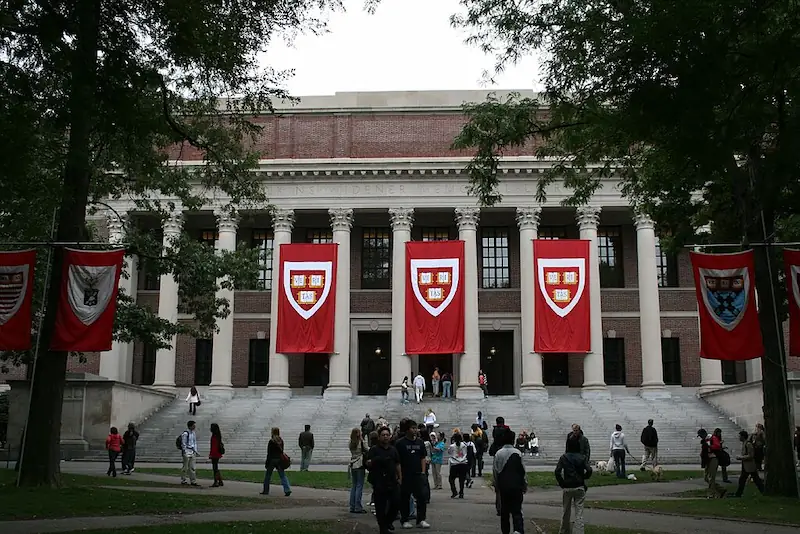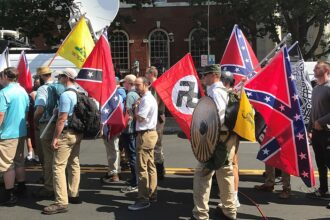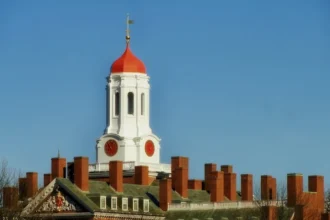Targeting Harvard: Foreign Students, Public Subsidies, and the American Dream
Recently, the on-again, off-again settlement talks between the transformative presidential administration of Donald J. Trump and Harvard University hit a new setback. The White House once again declared the blue-blooded, atavistic, and ossified institution—accused of anti-Jewish and anti-Israel bias—unfit for accreditation, and warned it would soon subpoena records of its high tuition-paying but dubiously vetted foreign students, who now make over 27% of this tarnished Ivy League institution’s student body.
- Targeting Harvard: Foreign Students, Public Subsidies, and the American Dream
- Scandals Old and New: Plagiarism, Privilege, and the Harvard Way
- Cheating as Tradition: Harvard’s Ethos of Entitlement
- Overseers Then and Now: Cronyism, Control, and Historical Irony
- ‘Our Resolve’ or Their Agenda? Antisemitism, DEI, and Harvard’s Deep State
- The Price of Prestige: Endowments, Elitism, and Escaping Accountability
- Legacy Crime and Ivy League Grift: Trump’s Case Against Harvard
- Getting Made at Harvard: Legacies, Gatekeeping, and Sopranos’ Logic
- The Coruscanti Accent: Harvard English and the Theater of Elitism
- Harvard for Dummies: Grade Inflation, Remedial Classes, and the Legacy Mirage
Back in May, after the White House sought to block foreign students from attending Harvard, Harvard Magazine reported that its president, Alan M. Garber, “wrote to members of the Harvard community this morning to ‘condemn this unlawful and unwarranted action…[that] imperils the futures of thousands of students and scholars across Harvard and serves as a warning to countless others at colleges and universities throughout the country who have come to America to pursue their education and fulfill their dreams.’”
For many legacy students and those who aspire to join their ranks, Harvard represents not just a university, but a rite of passage into an exclusive social order.
Left unmentioned were all those American futures—6,793 of them—denied the opportunity to share in this dream so that the chameleon-like Harvard could continue to un-whiten the complexion of its student body while pocketing huge tuitions from elite foreign families, who gladly foot the exorbitant bill out-of-pocket, living a dream few others can afford and that their home countries simply cannot offer.
But why should the American taxpayer—squeezed by inflation, unaffordable housing, runaway medical costs, and obscene tuition fees, and increasingly unwanted by Harvard and its fellow Ivy League universities (aka country-club colleges, aka finishing schools for foreign nepo-babies)—continue to make the American dream come true for rich foreign kids, when that very same dream remains so unattainable for so many at home?
Scandals Old and New: Plagiarism, Privilege, and the Harvard Way
For those unfamiliar with the recent changes in Harvard’s leadership, Alan Garber became president following the resignation of Claudine Gay after a plagiarism controversy involving portions of her academic publications. The incident reignited long-standing public debate about the role of academic merit and institutional hiring practices in elite universities.
Historically, Harvard has faced its share of academic integrity issues. One notable example includes the temporary suspension of infamous student Edward “Teddy” Kennedy (younger brother of John F. Kennedy) for academic dishonesty during his time as an undergraduate in the early 1950s. Kennedy entered Harvard in 1950 but was suspended in 1951 for cheating on an exam, later returning to graduate in 1956.
His brother, John F. Kennedy, had previously served as a U.S. Senator from 1953 to 1960 and was elected President in 1960, taking office in January 1961. Kennedy was later at the center of the tragic 1969 Chappaquiddick scandal, which drew national scrutiny and controversy, though he continued to serve for decades as a U.S. Senator from Massachusetts.
Cheating as Tradition: Harvard’s Ethos of Entitlement
There has long been a public perception that Harvard’s culture of exclusivity may have enabled questionable academic practices. During freshman orientation week in 1981, I personally witnessed new students being coached to mirror answers during a required computer programming competency exam—a jarring experience which illustrates broader concerns about fairness and academic integrity in elite institutions. Most of the freshman class thus became complicit in Harvard’s cheating culture, whether by copying the answer provided, or by our silence.
Critics argue that elite universities like Harvard perpetuate inequality by favoring legacy admissions regardless of academic merit.
Harvard’s traditions and symbols, like its alma mater “Fair Harvard,” have evolved over time, including revisions to language aimed at making them more inclusive. Yet critics argue that inclusivity and integrity remain ongoing challenges.
Following Claudine Gay’s departure, some observers questioned whether the selection of Alan Garber as her successor was influenced by a desire to address concerns raised about antisemitism on campus. While such interpretations are speculative, they underscore the complexity of institutional responses to issues of identity, bias, and leadership at top-tier universities.
This broader conversation about leadership and accountability at Harvard inevitably brings into focus the role of its governing bodies—particularly the Board of Overseers, whose influence and symbolism warrant closer examination.
Overseers Then and Now: Cronyism, Control, and Historical Irony
The term “Overseers” has a complex historical legacy. While at Harvard, the Board of Overseers refers to a long-established alumni advisory body tasked with upholding the university’s mission, I find the name can evoke uncomfortable historical parallels. In pre–Civil War America, for instance, “overseers” were also known as plantation managers responsible for enforcing labor among enslaved populations.
Today, critiques of the Harvard Board of Overseers tend to focus on concerns over transparency and inclusivity in its selection process. According to commonly available summaries, some argue the nomination process limits alumni choice and may favor candidates aligned with established interests, raising concerns about institutional accountability.
‘Our Resolve’ or Their Agenda? Antisemitism, DEI, and Harvard’s Deep State
Indeed, in Garber’s letter to the Harvard community on March 31, 2025, titled “Our Resolve,” he wrote: “Urgent action and deep resolve are needed to address this serious problem that is growing across America and around the world. It is present on our campus. I have experienced antisemitism directly, even while serving as president, and I know how damaging it can be to a student who has come to learn and make friends at a college or university.”
Not considered, however, is the possibility that President Trump, in his rhetoric and policy proposals, reflects the very kind of “urgent action” and “deep resolve” Garber calls for, particularly in challenging what some critics see as longstanding cultural and ideological biases at elite institutions like Harvard.
The legacy admissions system has long drawn comparisons to systemic favoritism.
Allegations of antisemitism at Harvard have persisted despite Garber’s appointment, which some observers view as a response to controversies during the tenure of the previous president, Claudine Gay. Her leadership faced criticism related to both her academic record and the university’s handling of campus tensions. These events reignited debates about identity-based academic programs and broader affirmative action policies, which were significantly reshaped by the Supreme Court in 2023.
Critics have also questioned the academic rigor of certain programs labeled under identity studies, though supporters argue these disciplines provide critical perspectives on historically underrepresented communities. Parallel critiques have long existed regarding legacy pathways in more traditional departments, such as Government, which some say disproportionately benefit students with established institutional ties and social capital.
In both cases, the underlying concern remains: how to ensure that merit, access, and accountability are equitably upheld at one of the world’s most influential universities.
The Price of Prestige: Endowments, Elitism, and Escaping Accountability
Garber remains under the shadow of the controversies that surrounded Claudine Gay’s presidency, particularly regarding her widely criticized appearance before Congress, where she was faulted for not clearly condemning antisemitism at Harvard. Broader tensions about the university’s response to antisemitism persist, with some critics suggesting that these concerns have, at times, been overshadowed by other historical narratives within academic and activist communities.
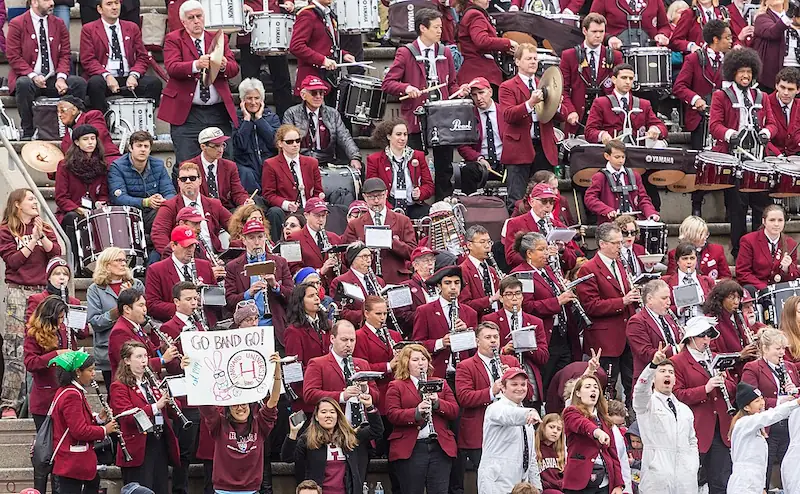
The Harvard Corporation, which appointed Gay as the university’s first president selected under a heightened DEI (Diversity, Equity, and Inclusion) framework, also continues to face scrutiny. Some have viewed her appointment as symbolic, sparking debate over the balance between representation and institutional qualifications.
While President Trump has expressed confidence in reaching an agreement with Harvard, his supporters have raised pointed questions. Chief among them: Why should public resources support a private institution they see as disconnected from national interests and White House policy priorities?
This skepticism is heightened by Harvard’s reluctance to fund certain operations from its sizable endowment, reportedly exceeding $50 billion. University officials cite legal and donor restrictions on these funds. Critics argue, however, that relying on taxpayer money, despite such financial resources, raises questions about fairness and fiscal responsibility.
Legacy Crime and Ivy League Grift: Trump’s Case Against Harvard
President Trump has publicly stated that he would prefer to eliminate federal funding for Harvard altogether. On Truth Social, he wrote: “Why isn’t Harvard saying that almost 31% of their students are from FOREIGN LANDS, and yet those countries, some not at all friendly to the United States, pay NOTHING toward their student’s education, nor do they ever intend to. Nobody told us that.” (The White House cites 31%, whereas Harvard’s own data places the figure at 27.2% for international student enrollment.)
In comments reported by The New York Times, Trump remarked: “What if we never pay them?… Wouldn’t that be cool?” These remarks echo broader public frustration with elite institutions perceived as out of touch with the concerns of average Americans.
Critics argue that elite universities like Harvard perpetuate inequality by favoring legacy admissions—students whose familial ties or financial contributions secure them entry—regardless of academic merit. This practice, they contend, undermines fairness and access for deserving students from less privileged backgrounds.
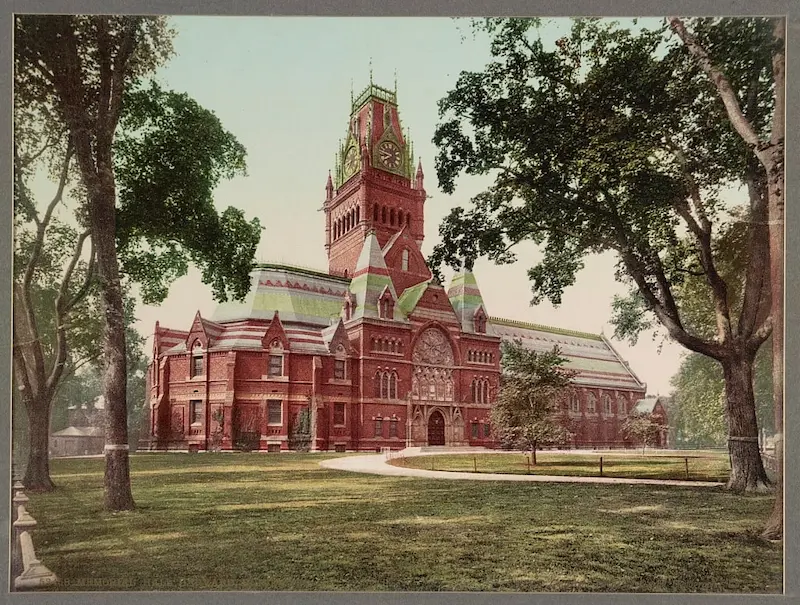
The Harvard Crimson, citing court documents in the Students for Fair Admissions (SFFA) case, reported that “192 students in the Class of 2019—representing more than 10 percent of the class—were members of the dean’s list or the ‘Director’s List.’” It also cited a 2019 study which “determined that roughly 75 percent of these admitted students would have been rejected if their legacy status, athletic ability, or presence on the dean’s list were not considered in the admissions process.”
The legacy admissions system has long drawn comparisons to systemic favoritism. Some view it as a way to preserve wealth and influence across generations, raising broader ethical questions about access, privilege, and the public role of private universities.
The debate continues over whether such practices warrant greater legal scrutiny or policy reform—particularly when these institutions receive significant federal funding. Add to this the ALDC category—Athletes, Legacies, Dean’s interest list members (a confidential list of applicants who receive special consideration, often due to connections with major donors), or Children of faculty and staff—which accounts for nearly 30% of Harvard’s admissions, an even larger proportion than that of international students.
Getting Made at Harvard: Legacies, Gatekeeping, and Sopranos’ Logic
When I got into Harvard (in hindsight, one of the most bittersweet days of my life), I was just one of two students admitted from my high school based purely on academic merit. Surprisingly—though perhaps not unexpectedly—three other classmates also gained admission, all legacy students, largely aided by the generous financial contributions of their families.
The other student admitted on merit was our class valedictorian, a peer I knew well from the intense academic grind of BC Calculus, AP Physics, AP French, AP History, and AP English. The legacy admits, by contrast, had rarely been seen in advanced classes; their path seemed paved more by privilege than academic achievement.
For many legacy students and those who aspire to join their ranks, Harvard represents not just a university, but a rite of passage into an exclusive social order.
For legacy admits, I liken entry into the Harvard community to becoming part of a tightly guarded inner circle—analogous, metaphorically, to its elite hierarchies of “made men” and “wise guys” depicted in pop culture by The Sopranos and Goodfellas. The contrast is often stark between those who worked tirelessly to gain admission and those whose access was largely inherited.
The Coruscanti Accent: Harvard English and the Theater of Elitism
Even in casual conversations on campus, the discourse often echoes this stratification—albeit delivered in a refined tone more reminiscent of classical drama than streetwise bravado, with more than a hint of the High Jedi’s elite elocution.
According to Google AI Overview: “In the Star Wars universe, the use of British accents, particularly Received Pronunciation (RP), is a stylistic choice that often signifies status and authority within the galactic power structures. This accent is often associated with the educated and upper-class individuals hailing from the Core Worlds and the Galactic capital of Coruscant … much of the original trilogy’s filming took place in England, leading to the casting of many British actors in early roles.
This choice evolved into a deliberate stylistic device, linking the Coruscanti accent with characters of higher status or those inhabiting the political center of the galaxy.” It’s much the same at Harvard, perceived by its powerful alumni network to be the very center of the universe.
Harvard for Dummies: Grade Inflation, Remedial Classes, and the Legacy Mirage
One of the three legacy admissions from my high school class had previously been expelled from the very same elite private school that Henry Kissinger’s son attended. (No public concern was expressed by either Harvard or this elite preparatory school regarding the controversial legacy of figures like Kissinger, including his role in U.S. foreign policy decisions that resulted in significant loss of life.)
This student had to repeat their senior year in public school before pursuing their offer of deferred admission to Harvard—an opportunity reportedly secured through a substantial family donation. This repeat of senior year created an illusion of strong academic performance—a mirage that proved readily sustainable once at Harvard.
Explore Books Written by Our Contributors
Harvard’s course offerings are extensive, accommodating a wide range of academic preparation levels and learning styles. Some legacy students begin by retaking subjects already studied in high school, potentially boosting their GPAs and class rankings. As of academic year 2020/21, 79% of Harvard grades were A-level, continuing a trend of grade inflation observed over recent years.
While Math 55 is renowned for its rigor—often serving as a challenge for mathematically gifted students like Bill Gates or Mark Zuckerberg—Harvard also offers a course known as Math 5, commonly viewed as a remedial option. In my time, it was taught by undergraduate instructors hired to support classmates who needed additional help in basic mathematics.
Once admitted to Harvard, whether by meritorious combat reminiscent, at least metaphorically, of The Hunger Games, or as a result of the privilege of favoritism, the distinction between academic preparedness levels among students thus becomes less visible, and by graduation, entirely irrelevant.
The views expressed in this article are those of the author and do not necessarily reflect the position of Politics and Rights Review.


